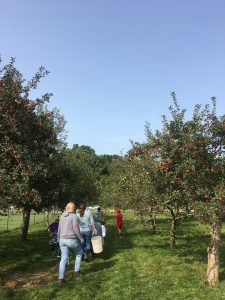This week for my semester internship with Stratford, I have focused on developing activity ideas for my final project- the two continuation learning activities. April also contacted me this week with an exciting update: the Environmental Education staff at Stratford met with a non-profit organization who created the “Green Machine”, a portable solar education display that can be used for outreach and onsite programs, and she hopes to incorporate the solar activity I develop for my internship with this new educational tool they have added to their center.
The Green Machine is essentially a simplified solar kit geared specifically toward K-12 learning and variations of this machine have been in the works for approximately 10-20 years. This newest model of the Green Energy Machine includes real-time data collection and in addition, the Green Machine is a fully functioning solar generator that can be used during events, outdoor programs, class sessions, etc.
This upcoming week I plan to visit Stratford to learn more about the Green Machine and the potential activities I could help generate to go along with it. Here is the one-page information flyer April passed along regarding the Green Machine and its purpose:

